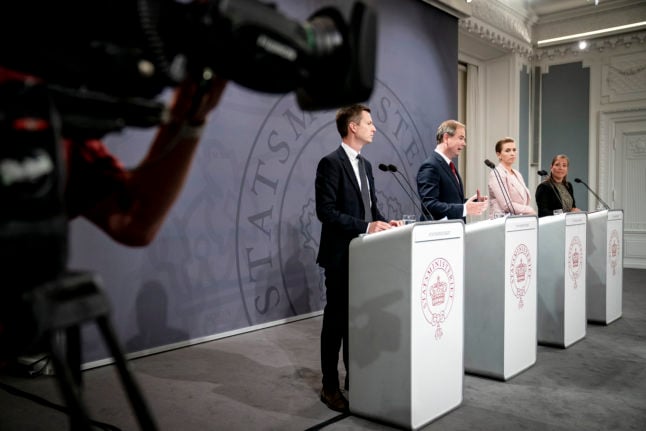A new proposal for reforms in Denmark, presented by the government on Monday, could see a significant number of Master’s degree programmes shortened from two years to one and red tape in public services trimmed back.
The proposal is titles Danmark kan mere III (“Denmark can do more part III). It follows earlier reform packages tabled in September 2021 and April 2022, which focused on social welfare and energy, among other areas, respectively.
Higher education
The headline element of Monday’s proposal is arguably the plan to shorten a large number of Master’s degrees at Danish universities from two years to one.
The proposal was first reported in Danish media last week and has now been formalised with Monday’s announcement.
READ ALSO: Denmark plans to shorten university courses to save money
Currently, it takes two years to complete any Master’s degree in Denmark (after completing the three-year Bachelor’s degree).
While it is common in some countries – including the United States and United Kingdom – to enter the labour market after completing a Bachelor’s degree, this is not the case in Denmark, where most university students go on to do a Master’s programme.
The government is proposing to shorten around half of all Master’s degrees by a year. This means that the Master’s programme will take one year, rather than two, and that the total time these students spend at university will be around four years, not five.
Under the proposal, around 35 percent of existing MA or MSc degrees will become one-year programmes. 15 percent will become so-called erhvervskandidater “professional Master’s degrees”. These can be structured over anything from one to four years but will require students to work at least 25 hours per week while studying. The total hours of studying add up to a one-year course.
The remaining 50 percent of Master’s degrees will continue as two-year courses.
The government has not specified which programmes will be shortened but has confirmed that humanities and social science subjects will be the primary targets. Scientific degrees are less likely to be cut back.
“The educations in which you need an actual authorisation, for example in the health sector, or where you need to take a specialisation early, these need to remain at two years,” the Minister for Higher Education and Research, Jesper Petersen, said at Monday’s briefing.
The move will release two billion kroner of funding that can be reinvested in education, the government said.
Universities have shown opposition to the proposal. The rector of Aarhus University, Brian Bech Nielsen, told broadcaster DR that the changes would degrade the quality of university educations.
“This is very, very drastic because it is a very, very large proportion of university degrees that would be shortened. How do we know that this helps? [University] requires immersion in study, and that takes time. You can’t learn everything in half the time,” he said.
“It would mean that some Master’s graduates would have a lower level of qualification. That would damage Danish businesses our society and the students,” he said.
Public sector
The government wants to save money by cutting back on bureaucracy, particularly at the municipal level.
Around 2.5 billion kroner of spending will be diverted to other areas under the reform plan by cutting back on administrative labour and spending additional resources on “core welfare” (kernevelfærd), the government said.
“The human side of welfare has been given less time and documentation and cold numbers have been given more time,” Prime Minister Mette Frederiksen said at the briefing.
One example of reduced administration is a plan to scrap half of all daily registration tasks in the elderly care sector, DR reports.
According to the government, the plan does not mean fewer public sector workers, but a higher proportion in sectors such as childcare and elderly care.
As such, the plan does not mean people will lose jobs, Finance Minister Nicolai Wammen argues at the briefing.
“Some people will have to be re-trained. Others will spend less time in front of the computer and more in front of the public. It’s not something that can be done with a snap of the fingers but we want to set a very clear direction here,” Wammen said.
The government also wants to apply a “rule stop” (regelstop) meaning that every time a new rule is introduced in the public sector which could divert time from into administration, an existing rule must be scrapped. As such, the total number of rules does not increase.
The national organisation for municipalities, KL (Kommunernes Landsforening) expressed skepticism over the plan in comments to DR.
”There are no shortcut solutions in relation to reducing administration and releasing resources for welfare,” KL’s chairperson Martin Damm told the broadcaster.
The proposal would need backing from a majority of parties to be passed in parliament and implemented.



 Please whitelist us to continue reading.
Please whitelist us to continue reading.
Member comments